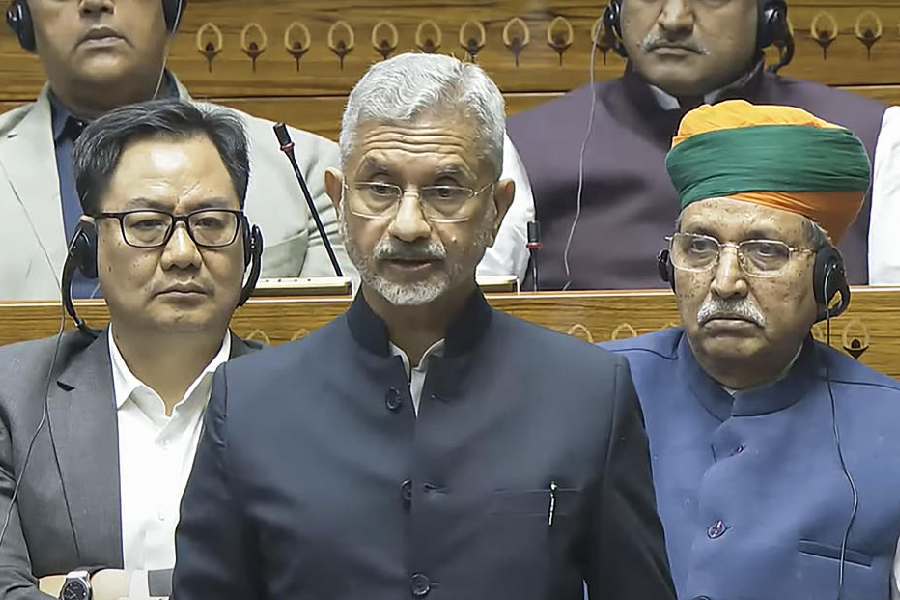External affairs minister S. Jaishankar informed the Lok Sabha on Tuesday that after full disengagement from the friction points with China in eastern Ladakh last month, India’s priority is to address the issue of troop amassment along the Line of Actual Control (LAC).
Making a suo motu statement in Parliament in light of the October 21 agreement that facilitated the disengagement at Depsang and Demchok and the completion of the disengagement exercise, Jaishankar provided a detailed account of the India-China relationship and how the “unprecedented disruption in 2020” was “serious enough for heavy weaponry to be deployed in close proximity to the LAC”.
Dwelling on India’s expectation regarding the direction of bilateral ties, Jaishankar said: “In the coming days, we will be discussing both de-escalation as well as effective management of our activities in the border areas. The conclusion of the disengagement phase now allows us to consider other aspects of our bilateral engagement in a calibrated manner, keeping our national security interests first and foremost.”
He continued to maintain India’s stated position that peace and tranquillity in the border areas was a prerequisite for the development of bilateral ties, which took a hit with China amassing troops along the LAC in the spring of 2020 and the subsequent clash at Galwan that killed 20 Indian soldiers and some Chinese troops.
China has over the past four years been maintaining that the border clashes should not be allowed to affect the bilateral relationship.
Detailing the October 21 agreement, Jaishankar said the Indian objective was to ensure patrolling as in the past as well as the resumption of grazing by civilians as per longstanding practice. “This is indeed what we have agreed upon in regard to Depsang and Demchok.” An additional issue in Demchok pertains to the access to sites of significance to the local people.
According to Jaishankar, in a few other places where friction occurred in 2020, steps of a temporary and limited nature were worked out based on local conditions to obviate the possibility of further friction. “This, I must stress, applies to both sides and can be revisited as the situation demands," Jaishankar said, recalling several such frictions, transgressions and face-offs from 1954 to 2013.
“Earlier governments have agreed to a range of steps to defuse situations that have arisen at different times, including offers on our side to create demilitarised zones, limited non-patrolling zones, relocation or withdrawal of posts, disengagement of troops and dismantlement of structures. Different locations have seen different solutions being examined,” he said.











